CMMPH held its annual away day on the 12th December and was led by the Centre leads, Professors Edwin van Teijlingen and Susan Way. It is an opportunity for BU staff, PGR students and Visiting Faculty to come together and share their research development and impact over the previous year. Time is also given to thinking ahead to ensure the Centre is meeting its aims of promoting the health and wellbeing of women, babies and their families by enhancing practice through education, research and scholarship.
The morning started with an update about EDGE, an NHS IT platform that provides a governance framework for tracking NHS research studies. Doctoral students whose studies require NHS ethics approval will have their research tracked through this system. Other discussions included an update on REF and BU2025, developing a publications strategy and match-funded PhD studentships.
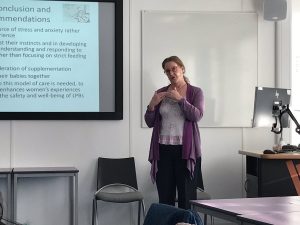
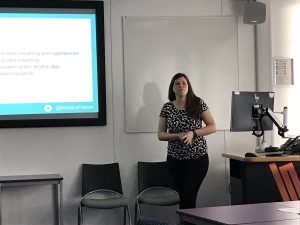
Luisa Cescutti-Butler Malika Felton
Several PGR students presented their work to date, ranging from rising caesarean section rates in hospitals in Nepal (Sulochana Dhakal working towards Probationary Review); acute and chronic effects of slow and deep breathing upon women who have pregnancy-induced hypertension (Malika Felton working towards Major Review); updating the understanding perineal practice at the time of birth by midwives (Sara Stride working towards Probationary Review) and women’s experiences of caring for their late preterm babies (Dr Luisa Cescutti-Butler recently awarded doctorate). The presentations were all excellent and produced a lot of questions and discussion. Well done to all those who presented.
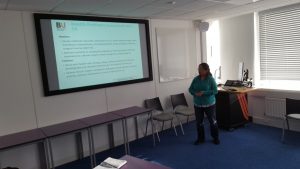
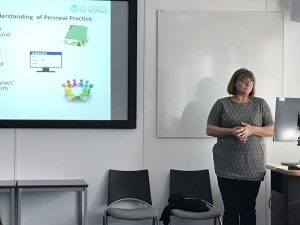
Sulochana Dhakal Sara Stride
The afternoon was used as an opportunity to think ahead about future collaborative research, how this fits in with the Centre aims and objectives as well as meeting the university’s ambitions to be a world class organisation.
The day was really enjoyable with a lot of positive feedback.
Edwin and Sue





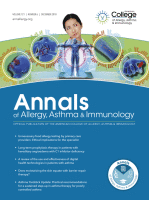











 Upcoming opportunities for PGRs – collaborate externally
Upcoming opportunities for PGRs – collaborate externally BU involved in new MRF dissemination grant
BU involved in new MRF dissemination grant New COVID-19 publication
New COVID-19 publication Conversation article: London Marathon – how visually impaired people run
Conversation article: London Marathon – how visually impaired people run MSCA Postdoctoral Fellowships 2024
MSCA Postdoctoral Fellowships 2024 Horizon Europe News – December 2023
Horizon Europe News – December 2023